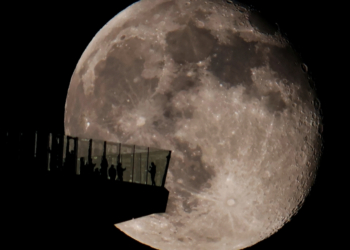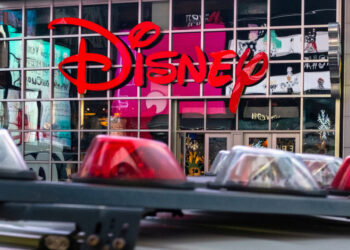In 2016, the Justice Department brought charges against 130,000 suspects. Grand juries rejected indictments only six times, according to agency statistics compiled by Niki Kuckes, a professor at Roger Williams University with expertise in the grand jury process.
During the Trump administration, by contrast, grand jurors across the country have repeatedly rejected prosecutors’ requests for indictments.
Those rejections potentially embolden future grand jurors to be more skeptical of prosecutors, legal experts said. The publicity around rejected cases also has provided a rare window into the grand jury process — a secretive part of the legal system that not even defense attorneys typically have access to.
Grand juries have increasingly become a headache for the administration. Many rejections have involved immigration-related probes and cases in which prosecutors pressed serious charges against people accused of minor altercations with law enforcement officials.
D.C. grand jurors, for example, refused to indict a former Justice Department employee who threw a sandwich at a federal agent in an incident that went viral on social media in August. That same month, on three occasions, grand jurors refused to indict a D.C. woman who was accused of assaulting an FBI agent.
Rejections are not the only topic that has focused attention on grand jury proceedings.
In federal court last week, a judge pressed Lindsey Halligan, the top prosecutor in the Eastern District of Virginia, about what happened behind closed doors when she presented grand jurors an indictment against former FBI director James B. Comey.
The grand jurors had rejected one of three counts in the indictment Halligan had presented. She then had a person on her staff draw up a new version, with the two counts the grand jurors had approved, and had the foreperson of the grand jury sign off on it.
The way prosecutors viewed it, Halligan made a small, technical error in the grand jury process. The way Comey’s attorneys viewed it, she had committed a grave error that violated his rights and basic grand jury norms because the full grand jury never saw the final text of the indictment. That warranted blowing up the entire case, they argued.
“It was very, very, very unusual,” Kuckes said.
Which side has the stronger argument may never be resolved. A judge on Monday dismissed the case against Comey on the grounds that Halligan was unlawfully appointed to her post. The judge similarly dismissed a case against New York Attorney General Letitia James, which Halligan had also presented to a grand jury.
The Justice Department may go back to a grand jury to seek new indictments against the two longtime foes of President Donald Trump, although the deadline for seeking charges may have passed in Comey’s case.
If prosecutors do try again, there’s no guarantee grand jurors will go along.
That’s a rare predicament for the Justice Department. Rejections are unusual, in part because the grand jury process is designed to favor prosecutors, said Bernard E. Harcourt, a professor at Columbia Law School. Prosecutors are typically the only ones — besides witnesses and jurors — allowed in the grand jury room. The suspect is not allowed a defense. Prosecutors are also not required to present evidence that could undermine their case and show that the suspect is potentially innocent.
That is because to indict someone, prosecutors only need to convince a majority of grand jurors that there is a probable cause that a crime was committed. By contrast, to obtain a conviction at trial, prosecutors need to convince a unanimous trial jury that the defendant committed a crime beyond a reasonable doubt — a significantly higher burden.
The high-profile difficulties the administration has faced, Harcourt said, are “pulling the curtain back and allowing us to see the problems with grand juries.”
“These are arms of the prosecution, only the prosecutors are in there talking. There isn’t a judge in there. There aren’t attorneys. … The institution just trucks along and, typically, we don’t peek behind the curtain,” Harcourt said.
“But it’s moments like this that we question, how can this happen? Well, what do people expect? There is no one in there — other than the prosecution — to ensure that there is due process.”
The grand jury is a crucial part of the legal process and is governed by strict secrecy laws. The Constitution requires that all serious criminal charges be issued via indictment by grand jurors. Unlike trial jurors, who decide whether someone is guilty or innocent in a single case, grand jurors often sit for months, hearing evidence in multiple cases, interviewing witnesses and voting on whether the government has met its burden of proof.
Grand jury proceedings take place in secret to protect the privacy of people who may be interviewed by the grand jury but not implicated in crimes.
“The rationale for it is that they are going to be investigating a lot of people, including people who are not being accused of committing crimes,” Kuckes said. The rules, she added, aim to “protect people who are innocent and not to tip off people about an investigation.”
Defense attorneys become privy to what unfolded during the grand jury process only when they receive transcripts of witness interviews during discovery, which occurs after a person is indicted, at which point prosecutors are required to hand over the evidence they collected to the defense team.
That secrecy has also become an issue for the administration. Justice Department officials earlier this year asked federal judges in New York and Florida to unseal grand jury transcripts related to the sex trafficking charges against Jeffrey Epstein amid public outcry that the administration was not releasing enough information about the case.
Three judges rejected the requests, each explaining in terse opinions that court rules allow disclosure of such material in only limited circumstances and that the government’s rationale for unsealing the transcripts — the strong public interest in the case — was not one of them.
“The court’s hands are tied,” one judge wrote.
On Friday, the administration renewed its request in Florida, citing a new law passed by Congress calling for the government to release files about Epstein. And on Monday, prosecutors similarly renewed their request in New York.
The post From Comey to ‘sandwich guy,’ federal grand juries get rare spotlight appeared first on Washington Post.




